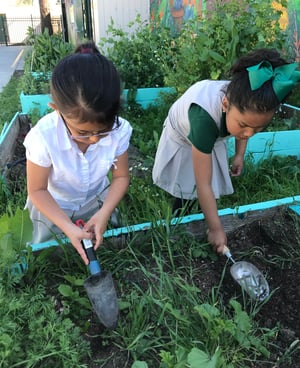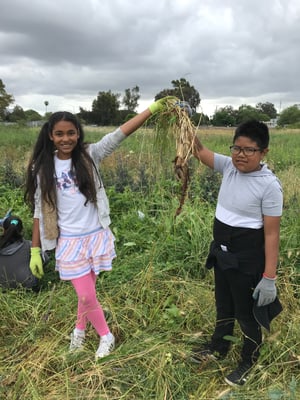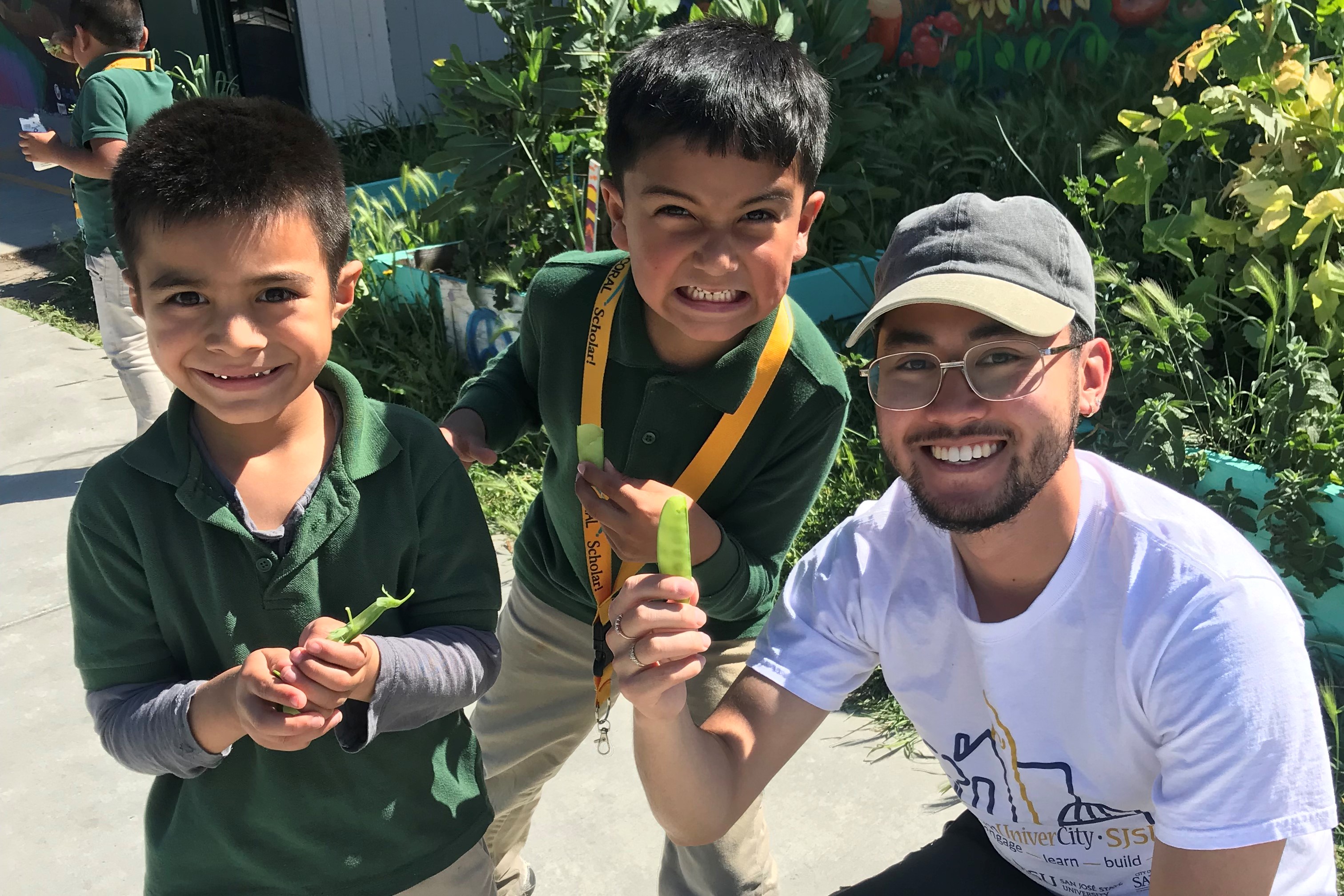“It’s hard to eat healthy. We’re introducing kids to things like seasonality of produce and buying organic.”
San Jose State students are getting out of the classroom to share lessons in healthy food and our environment with local kids and their families.
The Growing Sustainably program works to increase awareness of healthy eating and environmental stewardship in San Jose neighborhoods through a garden education program, school garden clubs, and workshops on nutrition and healthy food. This initiative is a project of CommUniverCity, a unique partnership between San Jose State University and the City of San Jose that gives college students the opportunity to apply their knowledge and work on projects that help solve problems or address issues of interest in the local community. Through this program, student interns, usually studying communications, environmental science, nutrition, or public health, are paired up with elementary school groups to develop and teach lessons about nature, how to garden, and how to choose healthy and culturally-relevant foods. The lessons draw on various disciplines and tie into the state’s academic requirements - students are not just learning to garden, they are learning to read recipes, count seeds, and more.

This three-year program, aided by a $166,740 grant from the Open Space Authority's Measure Q Urban Open Space Grant Program, has the goal of reaching 200 students per year. Over the 2018-2019 school year, the program worked with 285 elementary and middle school students at 5 different schools, taught by 7 San Jose State interns. Students surveyed this year showed increased understanding of healthy food and food cycles, increased comfort talking to their parents about healthy eating, higher rates of reporting that snacks at home consisted of fruits and vegetables (a 14% increase from the beginning of the school year), and higher rates of reporting that they enjoy being in nature.
It’s not just the younger students that reap the benefits of these lessons. The college interns get the chance to use the skills they are learning in their major, while making a difference in the community. Beyond that, this type of “community-engaged learning” helps to improve their overall academic experience. College students have been shown to have higher rates of finishing their degree in 4-6 years, and reported higher feelings of success.
“This program really opens your eyes to the problems that exist in our cities today, like food deserts,” says Alex Dahl, Growing Sustainably Program Manager and master’s student in the Department of Environmental Studies. “It’s hard to eat healthy. We’re introducing kids to things like seasonality of produce and buying organic. Most of these students have never heard about these things before.” Beyond helping to administer the day-to-day functions of this program, Dahl is studying the program for her master’s thesis, looking at how immersive educational opportunities can help to increase “pro-environmental behaviors” (like stating they love the outdoors, or making an active role in choosing healthy food) among elementary school students.

One San Jose State student intern surveyed reported broader professional lessons from the experience. "It made me realize that there is a need and a way to make important environmental information fun and accessible to kids. If I were to pursue a job in environmental education I would like it to be in a similar capacity to Growing Sustainably."

